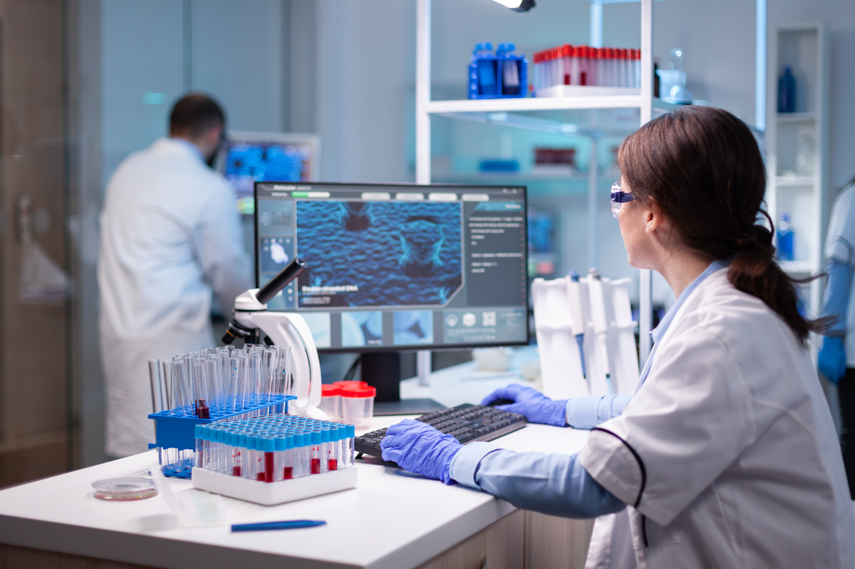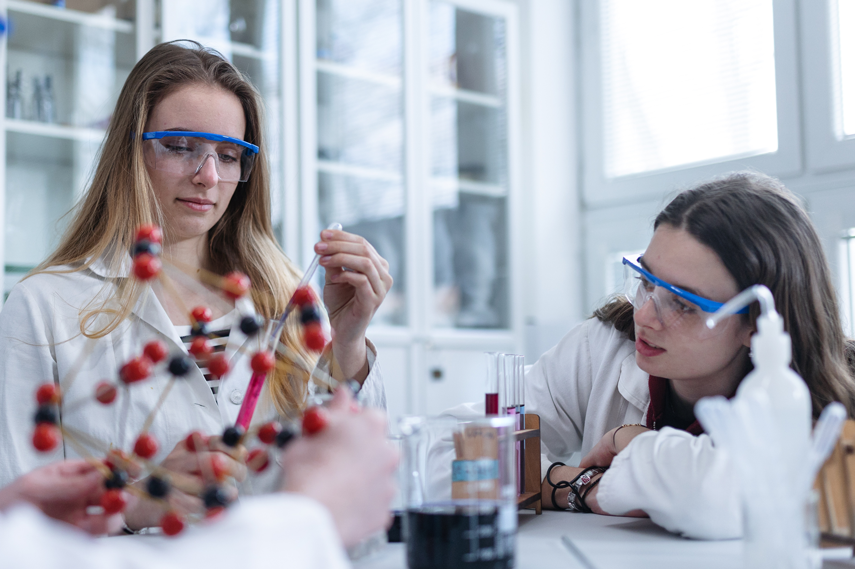
The International Day of Women and Girls in Science (IDWGIS) is observed annually on February 11th. It was initiated by UNESCO to raise public awareness of the importance of women’s and girls’ contributions to scientific and technological fields, as well as the need to strengthen their participation, as gender equality is still a global priority for UNESCO. The encouragement of young girls and their full capability to make their ideas heard are levers for development and peace, and a prerequisite to that is to promote women’s and girls’ full and equal access to and participation in education in science and technology, as well as women’s equal access to full employment and decent work in these fields.
A significant gender gap has persisted throughout the years and all over the world. This is particularly true when it comes to STEM — science, technology, engineering, and mathematics — fields, both in education and employment, at all levels. Despite a skill shortage in most scientific and technological professions, women still make up only 28% of engineering graduates and 40% of computer science and informatics graduates. Besides, in comparison to their male counterparts, women still account for only 33.3% of all researchers and 12% of members of national science academies, not to mention the fact that they typically have shorter, less well-paid careers, with their work underrepresented in high-profile journals, on top of frequently being given smaller research grants and getting passed over for promotions.

More girls are enrolled in school and higher education today than ever before; however, more often than not, they do not have the same opportunities as boys do to complete and benefit from an education of their choice. Far too many girls and women are still being held back by biases, social norms, and expectations that influence the quality of the education they receive and the subjects they study. As a result, they are still disproportionately underrepresented, particularly in these fields.
This gender disparity is alarming, especially given that STEM professions are often referred to as “the Jobs of the Future” that drive innovation, social well-being, inclusive growth, and sustainable development, hence it has always been among the top priorities for UNESCO — and, by extension, the United Nations. In a resolution on science, technology, and innovation for development that the General Assembly adopted on December 20th, 2013, it was acknowledged that full and equal access to and participation in science, technology, and innovation for women and girls of all ages is imperative for achieving gender equality and the empowerment of women and girls. And by passing Resolution A/RES/70/212 on December 22nd, 2015, the Assembly established an annual international day to recognize and commemorate the critical contribution that women and girls make in science and technology — that is, February 11th.
This year, the 8th IDWGIS Assembly will take place at the United Nations Headquarters, New York City, focusing on the role of women and girls in science as related to the Sustainable Development Goals (SDGs): SDG 6 (clean water and sanitation), SDG 7 (affordable and clean energy), SDG 9 (industry, innovation, and infrastructure), SDG 11 (sustainable cities and communities). Following up on the in-depth water discussions of the 7th IDWGIS of 2022, key stakeholders of these communities will be brought together for a substantive discussion on how to create the enabling environment for accelerated implementation of SDGS 7, 9, and 11, all while keeping a continuous focus on SDG6.
The 8th Assembly connects the international community to women and girls in science and technology, strengthening the ties between their knowledge and expertise and its applications in a systematic, critical way for the 2030 Agenda and its 17 global goals. Women in science and technology will be brought together in multilateral dialogues and discussions for identifying conditions and tools to put science, technology, and innovation at the heart of sustainable development programs, international relations, and public and private sector strategies and implementation plans. The Assembly aims to assist policymakers at all levels in developing a more mature relationship between science, policy, and society for strategies they can commit to in the future. The IDWGIS will thus showcase best practices, strategies, and applied solutions to addressing SDG challenges.
The empowerment of women and girls will be vital to progress toward all the goals and targets of the UN’s 2030 Agenda for Sustainable Development as well as to global economic development as a whole. And in its commitment to advance women’s and girls’ empowerment through equitable education, UNESCO is paying particular attention to this issue through research, policy, capacity-building work, digital skills development, and monitoring, to systematically address the drivers of gender disparity in STEM fields globally, build a strong knowledge base on the gender gap in STEM education, and provide evidence-based policy recommendations to education ministries and relevant stakeholders.
Source: https://www.un.org/en/observances/women-and-girls-in-science-day

